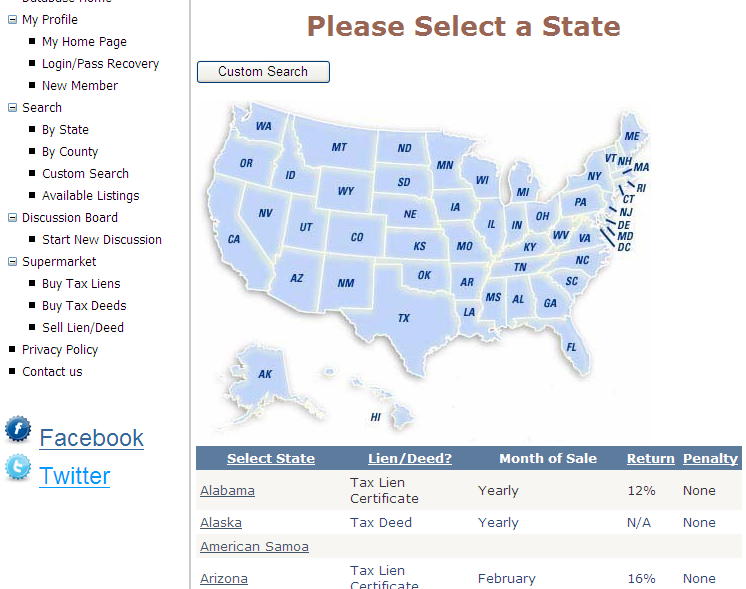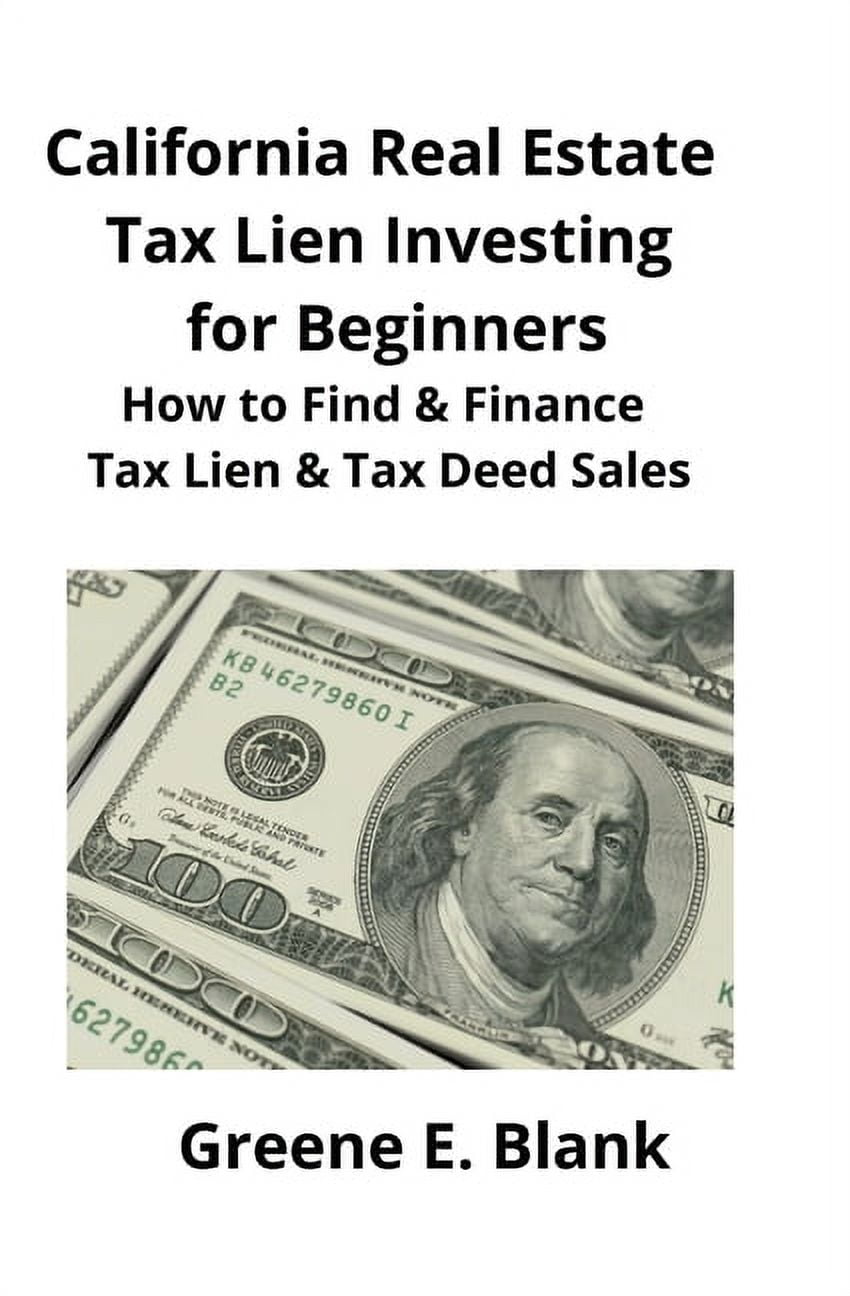All Categories
Featured
Table of Contents
If you are interested in the tax obligation lien repossession process, you must call an attorney so you comprehend and evaluate the threats of this kind of investment. - tax lien and deed investing
Tax obligation lien sales are one means that cities and counties try to redeem several of the general public bucks they have actually spent keeping these homes abandoned by personal owners. Yet, as we'll clarify in this short article,. As soon as real estate tax are considered delinquent, regional governments commonly concentrate on offering notification of delinquency and attempting to collect the unpaid amounts from the proprietor.
This process typically takes years - property tax lien investing. If an owner has actually walked away and is unwilling to pay taxes or maintain the home, the city should spend tax obligation bucks to preserve the home. These costsboarding up the structure, cutting thick lawn and weeds, responding to fire and authorities calls on the residential or commercial property, and moreadd up

Proprietors that have fallen on tough times absolutely require every initiative to maintain them out of delinquency and in their homes. Typically, if the residential or commercial property is vacant and scrubby, we must think the proprietor has actually selected to abandon their rate of interest in the residential property and that they are "resistant" to pay (though circumstances previously in the procedure may have forced their hand).
Best Tax Lien Investing Course
Take, for instance, a single-family home where the owner has long since strolled away. For several years the regional federal government has needed to step in and get rid of trash discarded in the yard, board up the doors and windows, and reply to phone calls regarding immoral task on the building. All these services cost the city government taxpayer dollars.
In many states, those expenses can be accumulated in the exact same manner as the unpaid taxes, yet not in all. In a tax lien sale (or tax certification sale) the neighborhood government normally holds a public auction where the winning bidder agrees to pay the most money for the right to impose the tax lien, starting with a minimal bid of at least the taxes possessed, plus applicable passion, charges, and costs.

When a government markets the tax obligation lien they are typically selling to a private customer the regional federal government's authority to collect the debt for ahead of time settlement of the tax obligations owed. The buyer's acquisition generally consists of the capability to gain future interest, along with recover relevant fees and expenses incurred by the buyer, if the home owner pays the tax financial debt.
This is, in essence, privatization of a core federal government feature: taxation. Tax lien sales are specifically negative when it involves vacant, abandoned, and tatty buildings because they lengthen the duration before a building can be moved right into the hands of a brand-new, extra accountable proprietor. Private tax lien customers hold the financial debt, yet they do not have the titlethe lawful right to ownership of the propertyand in a lot of cases, they have no interest in getting it.
Best Tax Lien Investing Course
Considering budget cuts, local federal governments in many states have actually decreased internal real estate tax collection and enforcement initiatives and sought to tax lien sales as a quick infusion of earnings - tax lien investment (certificate in invest lien tax). Lots of areas choose or are mandated by the state to offer tax obligation liens due to the fact that it contracts out collection and commonly generates really required cash earlier in the collection procedure
By transferring the local government's passion in and enforcement of the tax lien to an exclusive customer, local governments lose much of their adaptability: adaptability to obtain uninhabited properties that the private market does not desire, or to aid the owner prevent losing their home. With uninhabited residential or commercial properties, there is a much greater possibility that the exclusive buyer isn't interested in the residential or commercial property itself.
Tax obligation lien sales can create harm in traditionally disinvested locations. In a depressed housing market, less proprietors are able to redeem the quantity of the debt offered to a tax lien buyer. These areas are ripe for a different kind of tax obligation lien investorspeculative owners looking for to obtain buildings on the economical by foreclosing on the real estate tax lien, bleeding what little equity is left by renting a low-grade residential or commercial property to prone lessees, and afterwards abandoning the property when they've earned back their investment.

Not all state regulations offer city governments the power to interfere in this cycle. In either case, the building stays vacant and in limbo, all the while enforcing considerable expenses on its next-door neighbors and taxpayers. It's understandable that lots of neighborhood governments turn to tax lien sales because they help fund crucial civil services.
If the neighborhood government instead offers the property (aka the "tax deed"), instead of the tax obligation debt, then they are in control of what takes place to the property and the enforcement procedure if the owner remains to not pay the residential or commercial property tax obligation owed. The federal government will certainly offer the owner a practical time to repay the tax obligation financial obligation, after which the government will seize its interest in the tax obligation lien and the proprietor's right of redemption.
From their beginning, these auctions were places for investors to benefit with exploitation. In early 20th-century cities, infamous "tax obligation sharks" like Chicago's Jacob Glos and New York's Charles Wiltsie amassed fortunes by buying up scores of tax obligation liens on properties, charging their owners expensive amounts to eliminate the lien, or waiting until the target date for negotiation passed and claiming the act.
Invest In Tax Liens

Phone calls to eliminate tax obligation lien sales and overhaul tax obligation misbehavior regulations have occasionally erupted. Commonly, they have actually can be found in action to instances of inadequate, typically senior home owners who shed their homes to unscrupulous tax buyers over little tax financial debts. But with a couple of exceptions, state legislatures have resisted structural reforms.
Those who have actually settled their mortgages (mainly senior citizens or persons that had acquired a household home) must likewise discover the money to pay residential property tax obligations. This explains why 70 percent of the homes cost tax obligation lien sales are possessed outright. It is well previous time for states to adopt an even more humaneand a lot more effectivesystem for real estate tax enforcement.
Latest Posts
Tax Sale Property Listing
Real Estate Tax Sale Law
Property Sold For Delinquent Taxes